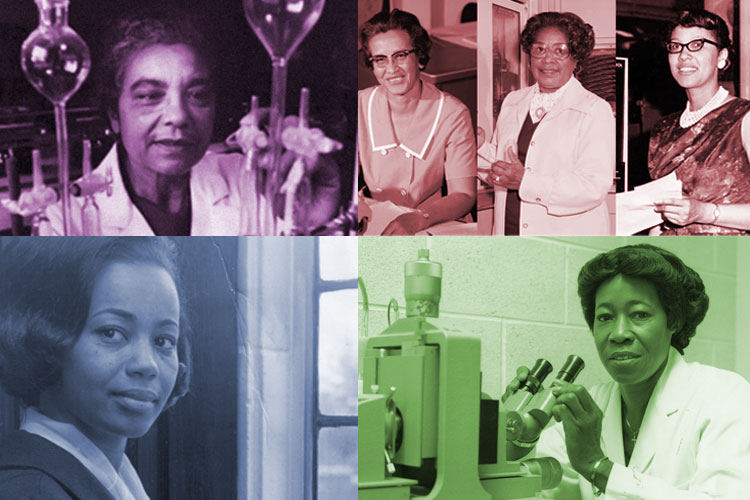Celebrating Pioneering Black Women in the Sciences
Honoring Trailblazers: Black Women’s Impact on Science and Innovation
In the spirit of February, a month dedicated to celebrating women in science and honoring Black history, it’s fitting to shine a spotlight on the remarkable contributions of Black women in the field of science. These individuals have not only broken barriers and shattered stereotypes but have also left an indelible mark on the world through their groundbreaking research and innovation.

Katherine Johnson, Dorothy Vaughan, and Mary Jackson
“Hidden Figures” at NASA refers to a group of exceptionally talented African American women mathematicians who played pivotal roles in the success of NASA’s early space missions. Among them were Katherine Johnson, Dorothy Vaughan, and Mary Jackson. These remarkable women broke through racial and gender barriers to become integral members of the space program, performing complex calculations and providing critical technical expertise. Katherine Johnson’s precise calculations were instrumental in the success of several space missions, including John Glenn’s historic orbit around the Earth. Dorothy Vaughan became NASA’s first African American supervisor, leading a team of “human computers” who computed complex equations by hand and later transitioned to programming early computers. Mary Jackson, NASA’s first African American female engineer, made significant contributions to the advancement of aerospace engineering, advocating for the inclusion of women and minorities in STEM fields. Their contributions not only helped propel America’s space program forward but also paved the way for future generations of women and minorities in STEM.
Learn more:
- Astrobites: The Incredible Women of Hidden Figures
- NASA’s Hidden Figures: The Unsung Women You Need to Know
- Time: What to Know About the Real Research Lab From Hidden Figures

Dr. Bettye Washington Greene
A pioneer in food chemistry, Dr. Greene made groundbreaking contributions to the development of food processing techniques. She was the first African American woman to earn a Ph.D. in Food Science, and her research focused on improving the nutritional quality and safety of processed foods. Dr. Greene’s work paved the way for advancements in food preservation and quality control.
Learn more about her:
- American Chemical Society
- Pioneering Chemist Bettye Washington Greene Researched Latex Products and Uses for Dow
- Meet Bettye Washington Greene

Dr. Jessie Carney Smith
An esteemed historian and author, Dr. Smith’s work has shed light on the culinary traditions and contributions of African Americans throughout history. Her research has explored the intersection of food, culture, and identity, highlighting the importance of preserving and celebrating Black culinary heritage.
Learn more about her:

Dr. Marie Maynard Daly
A trailblazer in food sciences, Dr. Daly was the first African American woman in the United States to earn a Ph.D. in Chemistry, while also being the first African American overall to earn a Ph.D. at Columbia. In the 1940s-1950s, she conducted groundbreaking research on the effects of cholesterol and hypertension. Throughout her career, she focused on elucidating the intricacies of biochemical processes, contributing significantly to our understanding of nutrition and health. Her passion for chemistry continues to shape dietary guidelines, exercise practices, and the treatment of heart disease today, leaving an enduring legacy in science and public health.
Learn more about her:

Mary Elliott Hill
Mary Elliott Hill is revered as a pioneering figure among the earliest African-American women in the field of chemistry. Esteemed for her mastery in both organic and analytical chemistry, Hill delved into innovative studies on the properties of ultraviolet light, contributing to the development of analytic methodology. Her work in ketene synthesis in collaboration with her husband Carl McClellan Hill played a pivotal role in advancing plastics. Acknowledged as one of the first African-American women to attain a master’s degree in chemistry, Hill is recognized for her contributions to analytical chemistry, including the design of spectroscopic methods and novel approaches to tracking reactions based on solubility.
Learn more about her:

